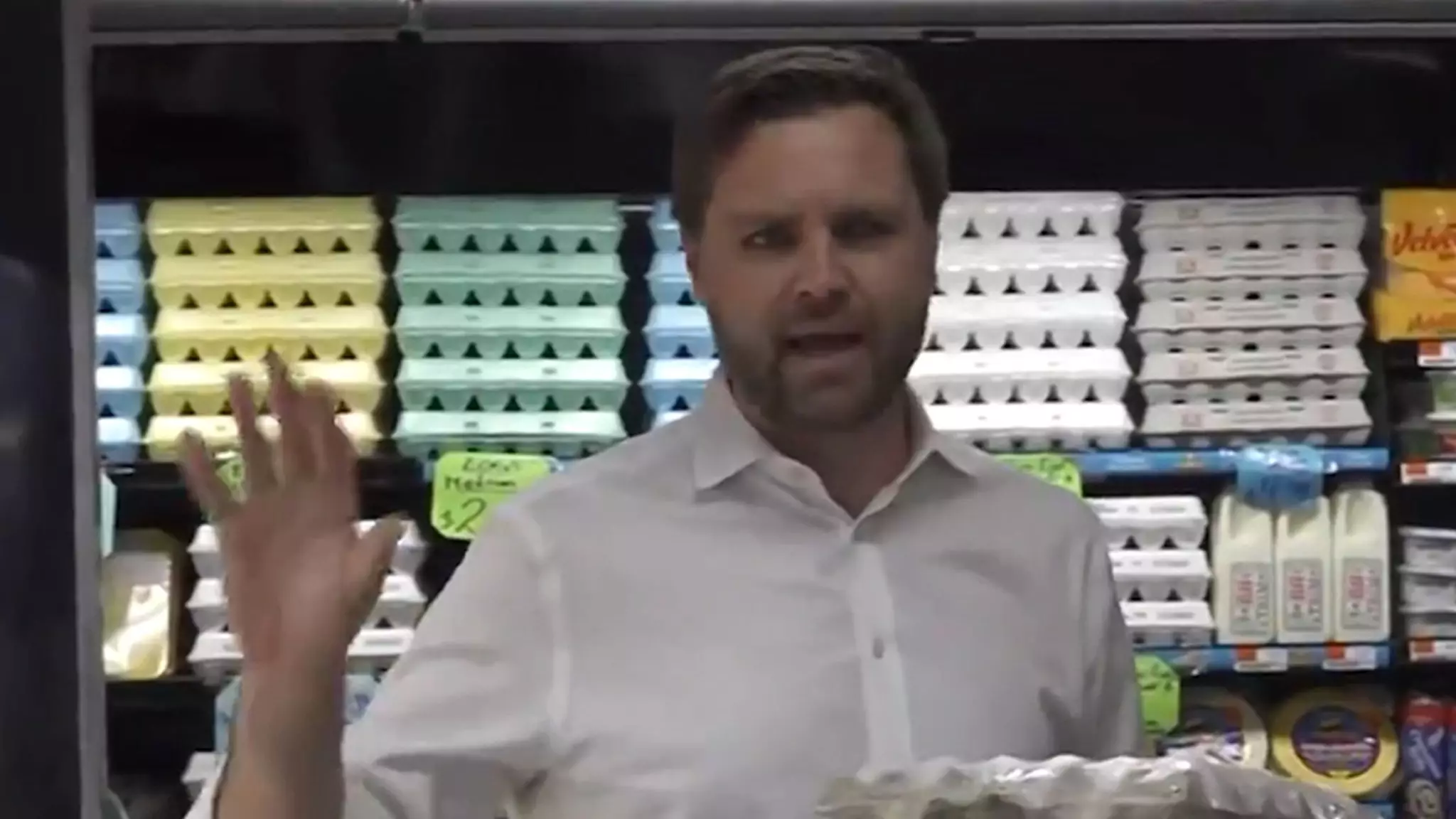The American political landscape is constantly evolving, and with it comes an avalanche of scrutiny targeted at politicians, particularly those vying for public office. J.D. Vance, a Republican Senate candidate and potential Vice President hopeful, recently found himself at the epicenter of controversy during an on-the-ground excursion in Reading, Pennsylvania. While trying to connect with local voters about the rising cost of groceries, particularly eggs, Vance made claims that almost immediately drew backlash from both sides of the aisle. Instead of presenting a well-rounded argument about economic issues, his comments raised questions about his credibility and understanding of the situation.
During his store visit, Vance boldly declared that eggs now cost about $4 per dozen due to policies enacted under the current vice presidency. However, much like a game of political telephone, his assertions quickly unraveled under the weight of factual scrutiny. Observant bystanders pointed out that the egg prices in the very store he was standing in were misrepresented, with visible signs confirming the price to be around $2.99 per dozen. The lack of attention to visible evidence left many critics believing that Vance was either misleading the public or woefully misinformed.
Furthermore, while Vance’s bigger picture argument might have had merit given that the average price of eggs reached nearly $5 in Pennsylvania earlier in 2023, his specific claims failed to resonate amidst real-time missteps. This situation reflects a broader issue with political figures who rely heavily on anecdotal evidence without adequately verifying their statements.
Adding yet another layer of absurdity to his grocery store visit, Vance claimed that his children consume an extraordinary number of eggs—14 every single morning. This assertion raises serious eyebrows not just for its exaggeration but also because it starkly contradicts widely accepted nutritional guidelines, which recommend significantly fewer eggs per week for children. This inconsistency highlights how, in their quest to connect with voters, politicians sometimes resort to hyperbole that detracts from their message and undermines their authority.
This isn’t J.D. Vance’s first viral misstep. His previous attempts at engaging the public have been marked by uncomfortable interactions, as seen during an ill-fated visit to a donut shop in Georgia. Criticism surrounding that incident focused on Vance’s awkward communication style and his vague ordering method, which drew ridicule from various quarters. It begs the question: is the Trump campaign’s strategy of putting Vance in the spotlight backfiring?
With such encounters accumulating, it may be prudent for campaign strategists to reconsider how they leverage Vance’s public engagements moving forward. They risk continuing to feed a narrative that paints him as disconnected from everyday realities faced by average Americans. As the political landscape becomes more competitive, the ability to effectively communicate and connect with constituents will be crucial for Vance’s aspirations.
Overall, the scrutiny from his grocery store appearance serves as a poignant reminder of the importance of transparency and authenticity in political discourse. The increasing public disdain for dishonesty suggests that candidates need to ground their statements in truth to maintain public trust and support.

Leave a Reply